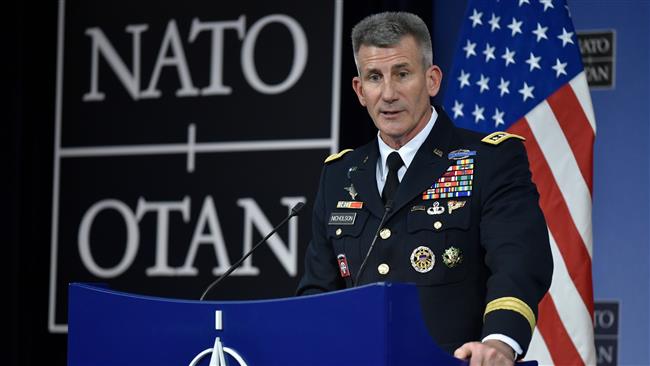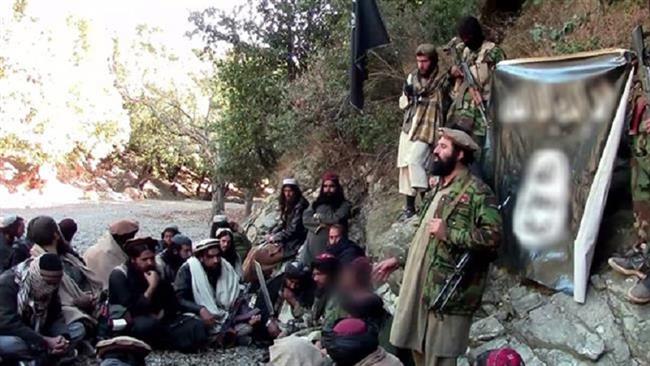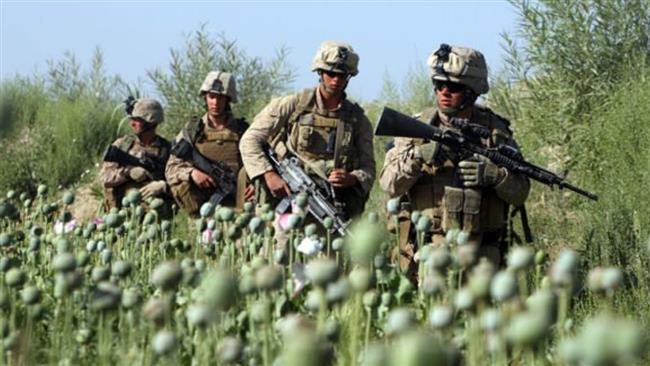Open-ended occupation of Afghanistan real intent of US policy: Scholar
An American scholar and political analyst says an open-ended occupation of Afghanistan by the United States and its proxies is the real intent of American policy.
Dennis Etler, a professor of Anthropology at Cabrillo College in Aptos, California, made the remarks in an interview with Press TV on Saturday while commenting on a statement by General John Nicholson, the top US Army commander in Afghanistan.
Nicholson told NBC News on Friday that the war in Afghanistan “is still in a stalemate.”
"We are only 90 days into this new policy, but with the US forces that will be arriving, with the new authority that we have been given, put the pressure on external enablers, with the fact that we are condition based and not time based, we've set all the conditions to win," he said.
Professor Etler said, “A popular American fantasy movie from the 1990s, ‘Groundhog Day,’ finds the protagonist caught in a time loop, repeating the same day over and over again. After indulging in hedonism and committing suicide numerous times, he begins to re-examine his life and priorities.”
“The US war in Afghanistan is a real-life example of what might be called the ‘Groundhog Day’ syndrome. For 16 years the US has declared that victory against the Taliban was imminent, that the US just needed more time and more troops to succeed,” he added.
“After a certain amount of time it is declared that the situation has stabilized and the Afghan government and defense forces are capable of handling it on their own. Plans are announced for a drawdown of US forces. Then as the withdrawal begins the Taliban reasserts itself and begins gaining the upper hand, only to elicit a US military ‘surge’ to stem the tide,” he stated.
“This happened in the Bush administration in 2005 and in the Obama administration as well. Trump while campaigning said that the Afghan War was a total disaster, intimating that the US take its troops home to ‘rebuild America.’ Soon after assuming office he reversed course and decided that US forces needed to be reinforced. He further stated that the US presence in Afghanistan had to be open-ended with no deadlines set in place,” the analyst continued.
“All the rhetoric by US generals and presidents about how well the fight is going, how their new strategy will, ‘set all the conditions needed to win,’ and all their talk about ‘the progress’ that’s been made, have been repeated ad nauseam for 16 years, with no real change in the prospects for success. All the boastful predictions and bombastic rhetoric are exercises in futility,” said Etler, who has a decades-long interest in international affairs.
Why the US has failed in Afghanistan

“The reason why the US has failed and will continue to do so in its mission to pacify Afghanistan is that the Taliban are not terrorists, but resistance fighters. Ever since their predecessors fought against the Soviet occupation of their country generations of patriotic Afghans have joined the fight to oust the foreign presence in their midst,” the commentator opined.
“The US, like all former imperialists, has found Afghanistan indigestible. According to General John Nicholson, the top US Army commander in Afghanistan, the war ‘is still in a stalemate,’ and winning means ‘delivering a negotiated settlement that reduces the level of violence and protects the homeland.’ In lieu of that unlikely outcome Trump vows to stay in Afghanistan without any time limit, in other words a perpetual occupation,” he argued.
“In reality, cutting through all the obfuscation and misdirection, an open-ended occupation of Afghanistan by the US and its proxies is the real intent of US policy. The US has illegally inserted its forces into Syria and plans to maintain its hold on Afghanistan for obvious geopolitical reasons, primarily to keep pressure on Iran and its allies, in order to maintain US hegemony in the Middle East in collusion with Israel and Saudi Arabia,” Professor Etler concluded.
In August, President Donald Trump announced his controversial war strategy for Afghanistan. In a blatant U-turn from his campaign pledges to end the 16-year occupation of Afghanistan, Trump said that his views have changed since entering the White House and that he would continue the military intervention “as long as we see determination and progress” in Afghanistan.
The United States -- under Republican George W. Bush’s presidency -- and its allies invaded Afghanistan on October 7, 2001 as part of Washington’s so-called war on terror. The offensive removed the Taliban regime from power, but after more than one and a half decades, the foreign troops are still deployed to the country.
After becoming the president in 2008, President Barack Obama, a Democrat, vowed to end the Afghan war -- one of the longest conflicts in US history – but he failed to keep his promise.
Trump, who has spoken against the Afghan war, has dubbed the 2001 invasion and following occupation of Afghanistan as "Obama's war".
But Trump has also announced to deploy thousands of more troops to the war-torn country, signaling a policy shift.
VIDEO | Israel steps up settlement expansion near Jenin
VIDEO | Iraqi resistance factions split over state control of weapons
Euro-Med: Israel using winter as weapon of genocide Euro-Med: Israel using winter as weapon to infl
Venezuela demands end to US military presence
Donors receive favors from Trump’s fundraising machine post-election: Report
VIDEO | Odds against peace in Ukraine?
Iran plans launch of its heaviest ever satellite on Dec 28
Epstein abuse survivors slam US Justice Department over redacted files














 This makes it easy to access the Press TV website
This makes it easy to access the Press TV website